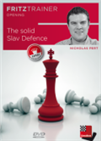Lasker vs his successors
When Lasker lost his title to José Rául Capablanca in 1921, he was 53 years old. Other World Champions no longer played at that age but even in his sixties Lasker was still one of the world's best players. This is shown by Lasker's games against his successors after he lost the title. The former World Champion had a positive overall score against the players who gained the title after him. 
After 1921, Lasker played 18 games against his successors Capablanca, Alexander Alekhine, Max Euwe and Mikhail Botvinnik. He won five and lost four, and nine ended in a draw, which results in an overall score of 9½-8½ in favour of Lasker.
Against Euwe, Lasker was particularly successful. They played three times and each time Lasker won.
But against Capablanca he had more trouble. After their World Championship match they played another seven games and with a score of 3-4 (+1, =4, -2, seen from Lasker's perspective) Capablanca again had the better of it.

Capablanca against Lasker | Photo: media2-web.britannica)
However, in the four tournaments in which they both participated (New York 1924, Moscow 1925, Moscow 1935, and Nottingham 1936) Lasker finished ahead of his rival twice. Only in Moscow 1936 and in Nottingham 1936, the last two tournaments Lasker played in his life, the Cuban was able to finish ahead of Lasker.
Perhaps Lasker's victory in New York 1924 was particularly sweet for the former World Champion. New York 1924 was a strong and prestigious tournament in which eleven of the best players of that time competed in a double-round-robin. Lasker won with 16.0 / 20, 1½ points ahead of the reigning World Champion, Capablanca, who finished second with 14½ / 20. Third place went to Alekhine who scored 12.0 / 20.
New York 1924
The "Mega" is the database every serious chessplayer needs. The database contains 7.1 million games from 1500 to 2017, in highest quality standard, full of top level analyses and completely classified.
Lasker lost only one game, against Capablanca of all people. But in a demonstration of his defensive skills Lasker managed to beat Alekhine, who three years later would defeat Capablanca in a World Championship.
The purpose of this DVD is to explain the viewer all main methods of defence: exchanging pieces, creating a fortress, eliminating dangerous enemy pieces, escaping the danger zone with the king, improving the position of the pieces.
After the loss of his title Lasker played four games against Alekhine: one win, one loss, two draws.

Alexander Alekhine | Photo: Public Domain via Wikimedia Commons
But after winning against Capablanca in St. Petersburg 1914, Lasker had to wait for 25 years and 11 games before he managed to inflict another loss on the Cuban — at the Moscow tournament 1935.
This French Defence DVD is a complete attacking opening repertoire for black after 1.e4 e6. GM Nick Pert has played the French defence his whole life and provides all his la test and most up to date analysis crammed into 1 DVD.
However, against Botvinnik Lasker failed to win a single game. Maybe age finally took its toll. When they played their first game, on March 6, 1935, at the Moscow tournament, Botvinnik was 23 years old, Lasker 66. The game ended in a draw. In Moscow 1935, Lasker finished third with 12½ / 19, half a point behind Salo Flohr and Botvinnik, who shared first place with 13.0 / 19 each, but half a point ahead of Capablanca who scored 12.0 / 19 to finish fourth.
Moscow 1935
A year later, at the Moscow tournament 1936, Lasker scored 8.0 / 18, less than 50 percent, finishing sixth.
Moscow 1936
The tournament was a double-round-robin and, in the second half of the tournament, Botvinnik managed to win his first and only game against Lasker.
Three months after the tournament in Moscow, Lasker went to Nottingham where he played the last tournament of his life. With 8½ / 14 he finished on place eight but won against Euwe — the last game of his career in which Lasker played against a World Champion.
Nottingham 1936  This Slav DVD is a complete opening repertoire for black after 1.d4 d5 2.c4 c6. GM Nick Pert has played the Slav defence for over 10 years and provides all his latest and most up to date analysis crammed into one video series. Nick has spent many hours studying the best Slav lines, and he explains his favourite variations, plus includes some interactive clips where the viewer is tested on a range of theoretical questions and tactics arising from Slav games.
This Slav DVD is a complete opening repertoire for black after 1.d4 d5 2.c4 c6. GM Nick Pert has played the Slav defence for over 10 years and provides all his latest and most up to date analysis crammed into one video series. Nick has spent many hours studying the best Slav lines, and he explains his favourite variations, plus includes some interactive clips where the viewer is tested on a range of theoretical questions and tactics arising from Slav games.
After the tournament in Nottingham 1936, Lasker still gave simuls and played casual games and in 1940 even a two-game match against his old rival Frank Marshall, but Nottingham 1936 was to remain his last serious tournament.
Lasker died on January 11, 1941, in New York
Links
























